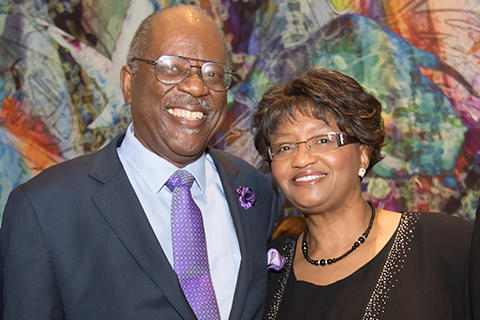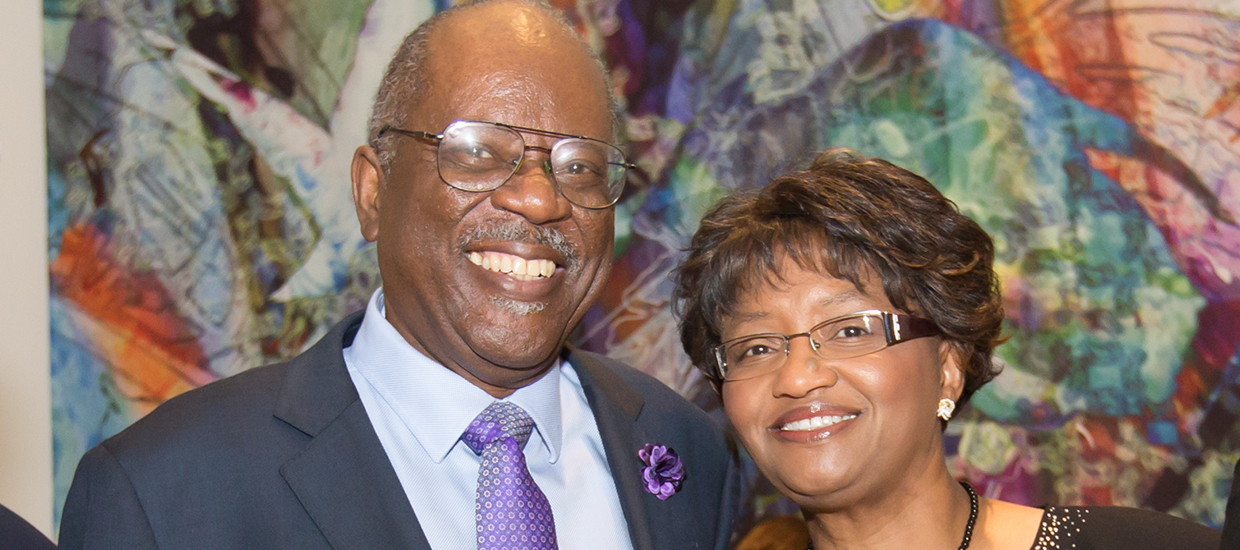It was 1964 and Harold (Hal) Long, Jr., Esq., A.B. '68, J.D. '71, knew the next step in his journey would be college, and it was clear where he wanted to begin. “It was the logical choice,” said Long. “It was the only school I applied to, and I was accepted.”
Long describes his longtime affinity for the University of Miami, for as far back as he can remember. “I’ve always loved Miami; the size of the city and alternatives, but especially the cultural diversity of the community.”
When Long was preparing to graduate high school, he had his sights set on the U. “Predominantly white universities were just beginning to accept black students and UM was the most notable school to be open to the change.”
Taking a stand
It was 1967 and Long was in his second year of studies. He was already confident that University President, Dr. Henry King Stanford recognized the significance of his presence at the U, even taking the time to get to know his parents. Under the tenure of Henry King Stanford, Long led the formation of the United Black Students (UBS), which had gained formal recognition in 1968. As the founder of the UBS, Long is a true UTrailblazer.
In an effort to draw awareness to the university becoming more inclusive of black professors, and more black students, Long and a few classmates staged a sit-in Dr. Stanford’s office. The students were arrested and as the spokesperson for the newly formed UBS, Hal’s parents, both life-long educators, only learned of the sit-in through local news reports. As they watched the news and one another, they both stated, “Hal wouldn’t be involved.” Long faced expulsion.
The next day Stanford personally called Hal's parents and told them that he had “a great deal of respect for Hal, understood principles that he and the students were fighting for, and assured them that they did not have to worry about Hal.”
The message of achievement, impact and inclusion of black professors and students resonated with Stanford and the entire UM community. Stanford contacted the judge and indicated that he supported the students. He then followed up with a letter of recommendation; encouraging the Law School to admit Hal with a full scholarship.
“I called the registrar's office and got the news, It was tremendous,” said Long. “I was accepted with a full scholarship, to study law at the U.”
Life of Law and Influence
Since graduating from the Miami School of Law, Long has been practicing law for more than 30 years, with his path to advocacy beginning at the University of Miami.
While still in law school as an intern, practicing law, he was assigned to the public defender's office in Opa Locka. He soon went on to at his first law firm in 1971; McCrary, Ferguson and Lee.
Covering a wide array of cases, he’s drawn to and is most passionate about family court because it’s the most rewarding to work through the family conflicts. “It’s the most disruption, most divisive, much more challenging with family members. But helping families sort through their issues, that’s what I enjoy most.”
True U Pride
“The U, my connection with the institution; I have always been proud and grateful for the UM community, true appreciation - for matriculation, scholarship, staying connected."
Over the years, Long has kept his connection close - with a focus on black students. Long frequently visits and speaks on campus, sharing his wisdom and inspiration to younger generations of 'Canes. In 2017, Long spoke with a group of UBS students, and shares it as his “greatest satisfaction; seeing the number of black students that are now graduating and getting degrees.”
Long is also a member of the Citizens Board, and a longtime avid UM football fan. Long shares that he always stays until the end of the game, no matter the outcome. As far as the Alumni Weekend and Homecoming Game against Duke? “A victory would be nice!”





